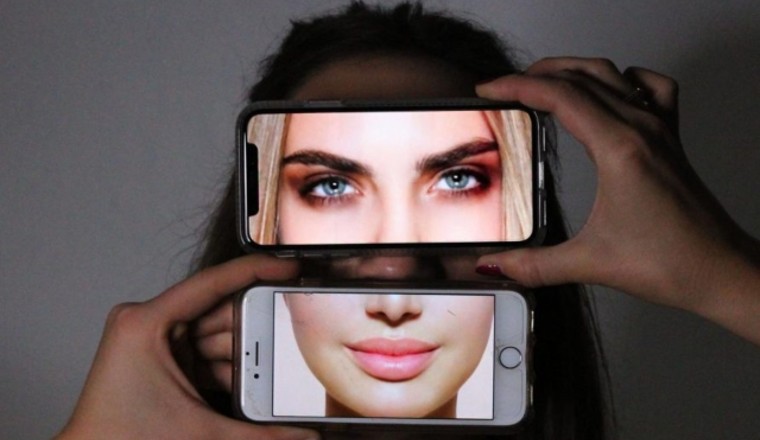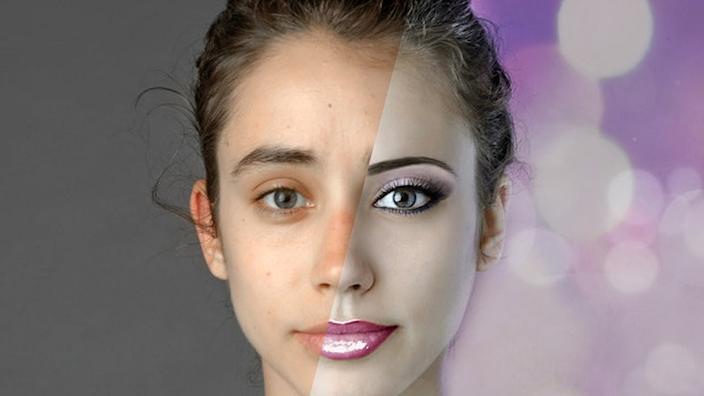Thu 01 June 2023:
Norwegian law requires social media influencers to declare whether or not a photo they have uploaded on social media has been edited, while France and the United Kingdom are considering similar legislation.
While imperfections in humans are common, social media promotes the appearance that influencers are perfect.
Face filters and other applications essentially allow people to alter their appearances, and as technology advances, it becomes more difficult for followers to notice photo alterations.
Concerns about the harm caused by the excessive use of filters are spreading around the world, with critics claiming that it promotes a culture of artificial beauty, particularly among teenagers and young people.
@alicia_perrillo Well, that was depressing 😂 #Scarlet #genx ♬ original sound – Alicia Perrillo
Research conducted by the brand “Dove” has shown that 80% of teenage girls have changed their appearance in online photos since the age of 13.
Studies have also shown that there is a connection between social media and depression and body deformity.
That is why some European countries have decided to control the use of beauty filters and establish regulations about it.
In Norway, advertisers and social media influencers are now required to declare whether the promotional photos they share online have been filtered or altered; Otherwise, they have done an illegal act, euronews reported.

Similar provisions are being discussed in the UK as part of the Online Safety Bill.
French Economy Minister Bruno Le Maire tweeted in March: “In the case of photos and videos published in the framework of advertising activities and as part of financial participation, we will make it mandatory to declare the use of filters or retouching.” “We do this to limit the psychologically damaging effects of these practices on the self-confidence of Internet users.”
Mental Health issues
Social media users who are dissatisfied with their own features, specifically, those who identify as women.
According to a report from the Wall Street Journal, this impact is real. In fact, in an internal document, Facebook revealed that it is aware of the harmful effects these apps have on women. The document reported, “thirty-two percent of teen girls said that when they felt bad about their bodies, Instagram made them feel worse” and “among teens who reported suicidal thoughts, 13% of British users and 6% of American users traced the issue to Instagram.”
@katidthatsme #stitch with @allcakenocheese My mind is blown #bellefilter #wasian #wasiangirl ♬ original sound – Kati D’Anjolell
In addition to cosmetic procedures, experts say there is a direct link between social media filters and lower self-esteem, self-confidence, and higher cases of body dysmorphia. “I definitely see a new theme to body dysmorphic concerns,” says Dr. Josie Howard, a board-certified psychiatrist who specializes in psychodermatology and is on the scientific advisory board for Proactiv.
@glambyfloThis is getting scary
“People begin to expect themselves to look like their filtered self and can become obsessed with achieving that in the real world, which leaves them depressed, anxious, lonely, and disappointed,” she says.
A Canadian study published in 2019 showed that time spent on social media could exacerbate or trigger body image concerns, explains Dr. Magavi. “This study contended that as little as five minutes spent on Facebook or Instagram could have the capacity to elicit this negative response.” Other studies have coined “Snapchat dysmorphia” or “selfie dysmorphia” as terms to describe this phenomenon.
@ros.july ❗️do not trust what you see on TT #fyp #trend #fake #filter #fakebeauty ♬ If you see this follow me lol – Mary🪬
On top of low self-esteem, these filters can also perpetuate feelings of loneliness and isolation. “At the same time that we are seeing people’s self-esteem eroded by exposure to social media, we are also seeing an increasing sense of isolation because these filters create a self-reinforcing feedback loop that leads to people spending more time on social media, seeking virtual validation, and less time connecting with others in the real world,” explains Dr. Howard.
@ericataylor2347 This filter #boldfilter #thisfiltermakesmefeel #why #thisfilter #filters #nofilter #over40club #filterlifeisntreallife #whyfilter #thisfilter #filter #why #ohnono #makeuptok #over40 #fyp #fypシ ♬ original sound – Erica Taylor
However, some experts believe that such regulations will not solve the problem.
Media psychologist Pamela Rutledge tells Euronews: “According to research, announcing that a photo has been retouched has no effect. But it would be much better if, instead of this, they fund media literacy and digital literacy so that teenagers are really prepared to face such a situation. Because the problem of the filter may appear in a different form tomorrow.

Only 5% of British citizens under the age of 18 indicated in a 2020 House of Commons study that they do not wish to improve their look through dieting or cosmetic surgery.
SOURCE: INDEPENDENT PRESS AND NEWS AGENCIES
______________________________________________________________
FOLLOW INDEPENDENT PRESS:
TWITTER (CLICK HERE)
https://twitter.com/IpIndependent
FACEBOOK (CLICK HERE)
https://web.facebook.com/ipindependent
Think your friends would be interested? Share this story!





